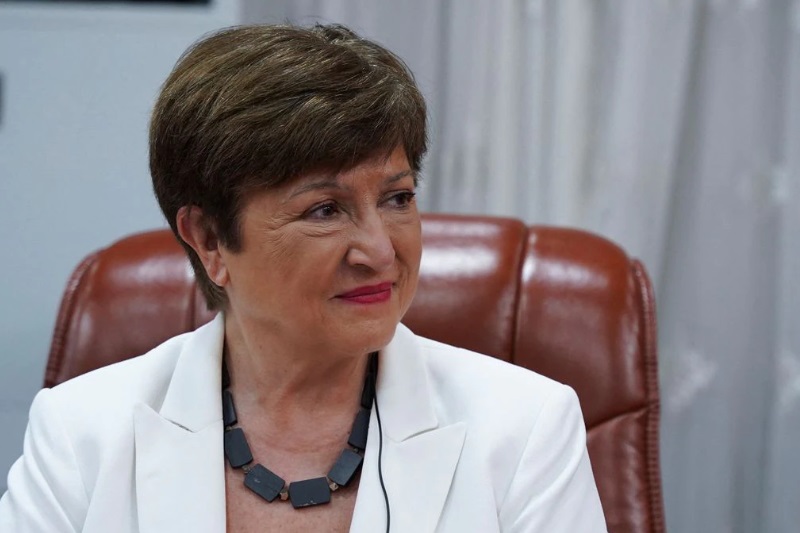By Geoffrey Smith
Investing.com — The world economy is facing its worst five years for growth in more than three decades, the International Monetary Fund warned on Thursday.
Speaking ahead of the IMF’s spring meeting, managing director Kristalina Georgieva said that world gross domestic product growth is likely to average only 3.0% over the next five years. That’s the lowest since 1990, and well below the average of around 3.8% seen over the last two decades.
In a briefing in Washington, D.C., Georgieva warned that the twin threats of deglobalization and geopolitical instability would act as a brake on growth in the coming years.
Her comments come at a time when Russia’s invasion of Ukraine and the increasingly open rivalry between the U.S. and China are ending a period of extreme freedom in trade and capital flows.
“The path back to robust growth is rough and foggy, and the ropes that hold us together may be weaker now than they were just a few years ago,” she said. The war, which she highlighted as a particularly potent threat to world prosperity, “risks wiping out the peace dividend we have enjoyed for the past three decades, adding also to frictions in trade and finance.”
For this year alone, Georgieva said growth will likely slow to below 3%, in line with the Fund’s existing forecasts, as the succession of interest rate increases across the developed world over the last 12 months takes its toll. She said that 90% of developed economies are likely to register slower growth this year than in 2022.
Georgieva repeated the Fund’s warnings about the world economy splitting into aligned blocs, breaking up supply chains and investment channels that have underpinned an unprecedented improvement in living standards across much of the world since the end of the Cold War.
At the same time, she warned that recent signs of financial instability meant that global regulators have to be “vigilant” and “agile” to head off any fresh threats to growth. She praised them, however, for their “remarkably swift and comprehensive” actions in recent weeks.
The Federal Reserve’s intervention to support regional U.S. banks has considerably damped volatility in U.S. markets in the last two weeks, while the Swiss National Bank’s (SIX:) decision to railroad Credit Suisse into a merger with UBS (SIX:) has avoided the failure of a global systemically relevant bank, albeit at the likely cost of various lawsuits later down the line from disgruntled shareholders and bondholders.
Read the full article here



